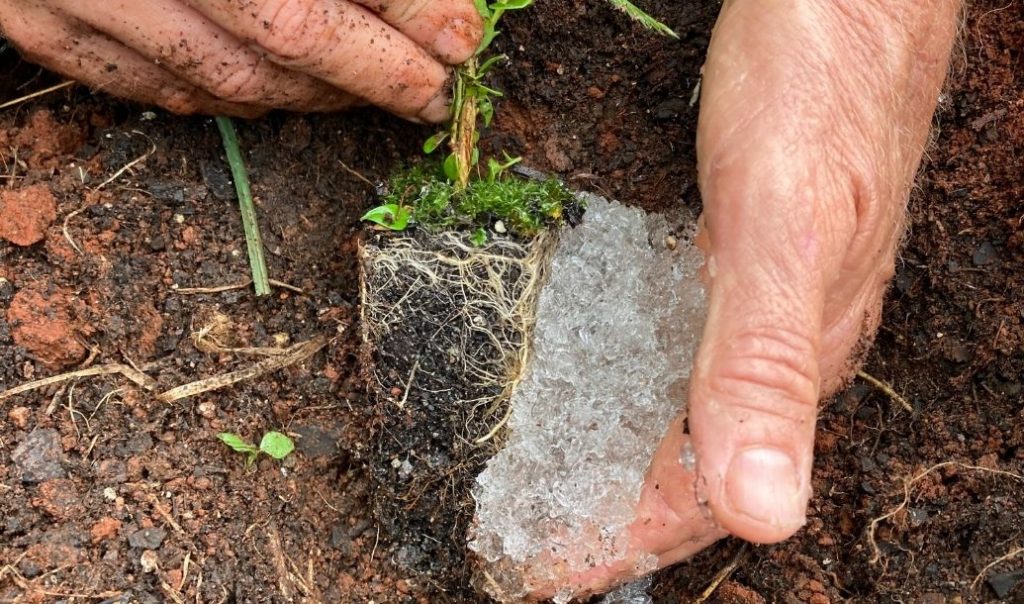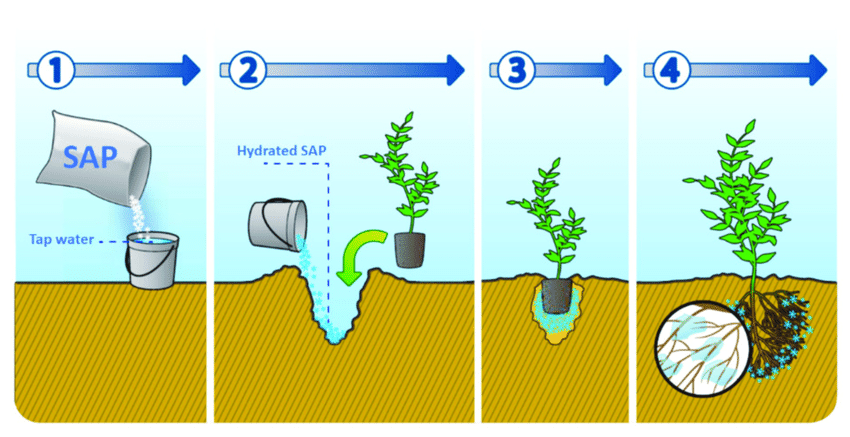Super Absorbent Polymer (SAP): An Overview
Super Absorbent Polymer (SAP) is a revolutionary polymer material renowned for its exceptional water absorption and retention capabilities. It is widely utilized for absorbing, retaining, or blocking liquids, demonstrating the ability to absorb water hundreds of times its own weight and transform into a natural gel within seconds. Importantly, SAP is entirely non-toxic, harmless, and environmentally friendly.
Applications in Agriculture:

SAP finds extensive use in agriculture, forestry, and gardening, serving various purposes such as soil water retention agents, seed coating, soil-less cultivation, and artificial turf.
Advantages of SAP in Agriculture:
- Enhances seed germination and emergence, providing plants with a healthy start.
- Saves irrigation water, leading to increased crop and fruit yield.
- Slowly releases fertilizer efficiency, containing essential nutrients like Potassium, Phosphorus, and Nitrogen.
Operational Guidelines for Using SAP:

- For Common Plants and Crops: Apply 15 to 30 kg per acre along with seed hole or ditch application to improve seed germination rate and promote seedling growth. Successful cases include corn cultivation in the U.S., pasture growth in arid areas of Inner Mongolia, and significant potato yield increases in Cape Verde, Africa.
- Seed Coating: Utilize SAP with fine particle size (0.3 mm or less) for quick seed emergence, strong growth, and enhanced disease resistance, particularly beneficial in drought-prone areas.
- Gardening, Horticulture, and Landscaping: Mix SAP with soil matrix for various planting scenarios such as indoor and outdoor pots, planters, balconies, gardens, and city landscapes. SAP usage results in water-saving, labor-saving, and time-saving benefits, prolonging plant greenery and blossom periods.
- Lawn and Golf Course Management: Implement SAP in golf courses and lawns to conserve water (up to 50%-70%), reduce maintenance costs, and enhance lawn health and longevity.
- Tree Planting: Enhance tree survival rates by using SAP during tree seedling planting, both for young trees and adult deciduous fruit trees. SAP aids in continuous water supply, promoting healthy growth and fruitful yields in various regions across China.
Overall, SAP plays a crucial role in modern agriculture, offering sustainable solutions for water conservation, crop productivity, and environmental stewardship.

